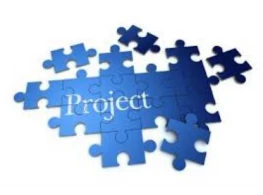INTRODUCTION:
The benefits of project management skills for non-project professionals, as well as for the project teams they support, are significant. However, little attention is focused on the critical and pivotal importance of these professionals’ knowledge and skills associated with how projects should be managed.
This training course gives participants the basic knowledge, processes, skills, tools and techniques recognized as good practices that the project professional and his/her team worldwide use in enhancing the chances of project success. The program provides:
- Insight into how projects are implemented
- Recommendations on how non-project professionals can aid in the successful implementation of a project
- Project management skills that can be used immediately upon returning to office.
PROGRAMME OBJECTIVES
- Obtain a fundamental understanding of basic aspects of managing projects
- Familiarize and use essential vocabulary and terminology in managing projects and apply basic project management knowledge, skills, tools and techniques to increase both work efficiency and effectiveness on the project team
- Plan, organize and control project activities by using proven project management skills of successful projects
- Learn and implement the five project management process groups to be performed for any project.
- Identify and understand the ten knowledge areas of project management
- Realize the importance of both hard skills and soft skills as these are applied to different aspects of successfully managing a project for the project team
- Learn how to proactively plan, monitor, track, update and control risks and opportunities to increase the probability of project success
- Manage the on-going needs, concerns and expectations of stakeholders to effectively engaging them in project decisions and execution to support the project’s interests
- Establish an effective and efficient communication strategy to get cooperation and coordination from stakeholders towards meeting the project objectives.
OUTLINE
Part 1 - PROJECT MANAGEMENT OVERVIEW
- What is a project?
- Definition of project management.
- The pitfalls of not using project management.
- Project vs. Operations.
- The triple constraints in project management.
- Stakeholders in project management.
- Project life cycle.
- Product life cycle.
- Project phases.
- The Hard/Soft skills in managing a project
- The Project Management Body of Knowledge (PMBOK).
- The ISO-21500 Guidance for project management.
- Project Management: The Process Context.
- Project Management: The Organizational Context.
- Critical Success Factors (CSFs) in managing projects.
- The Project Management Office (PMO).
RESPONSIBILITIES & COMPETENCIES OF THE PROJECT TEAM MEMBERS
- Project Management: The Interpersonal and Behavioral Context.
- Responsibilities of the project team member.
- Common challenges of the project team member.
- Skill requirements of the project team member.
- Functional competencies of the project team member.
Part 2 - PROJECT MANAGEMENT PROCESSES
- Initiating.
- Planning.
- Executing.
- Monitoring and Controlling.
- Closing.
PROJECT MANAGEMENT KNOWLEDGE AREAS
- Project integration management.
- Project scope management.
- Project time management.
- Project cost management.
- Project quality management.
- Project human resource management.
- Project communication management.
- Project risk management.
- Project procurement management.
- Project stakeholder management.
PROJECT INITIATION
- Develop the project charter.
- Identify stakeholders.
- Establish the preliminary project team.
Part 3 - PROJECT PLANNING
- What is project planning?
- The project planning process.
- Review project requirements.
- Conduct the Project Kick-off meeting.
- The Work Breakdown Structure (WBS).
- The Organization Breakdown Structure (OBS).
- The Responsibility Assignment Matrix (RAM).
- Scope planning.
- Schedule planning.
- Cost planning.
- Quality planning.
- Human resource planning.
- Communications planning.
- Risk planning.
- Procurement planning.
- Stakeholder management planning.
- The change control process.
- The project plan.
Part 4 - PROJECT EXECUTION, MONITORING & CONTROL
- Manage and coordinate project execution.
- Manage productive meetings.
- Manage technical performance.
- Manage schedule, cost and resource performances.
- Manage risks, issues and opportunities.
- Manage and control changes.
- Manage project team interfaces.
- Manage stakeholder relationship.
- Manage deliverables tracking.
- Project monitoring and control approach.
Part 5 - PROJECT CLOSURE
- Project closure objectives.
- Close procurement contracts.
- The “Punch-List” approach.
- Administrative closure.
- The project completion check-list.
- Hand Off deliverables.
- Close project.
- Obtain and update lessons learned.
- Post project evaluations.
- Communicate project achievements.
- Celebrate and reward performances.
- Transition to Operations & Maintenance.
WHO SHOULD ATTEND?
- Those who are involved in projects but do not manage them, such as Project Team Members, Coordinators, Stakeholders, Analysts, etc, who want to increase their level of effective and efficient contribution to the success of their project.
- Anyone in an administrative role in project environments, such as Executive Assistants and other Administrative Professionals, who wishes to increase their level of effective and efficient contribution to the success of any projects they are involved in.
